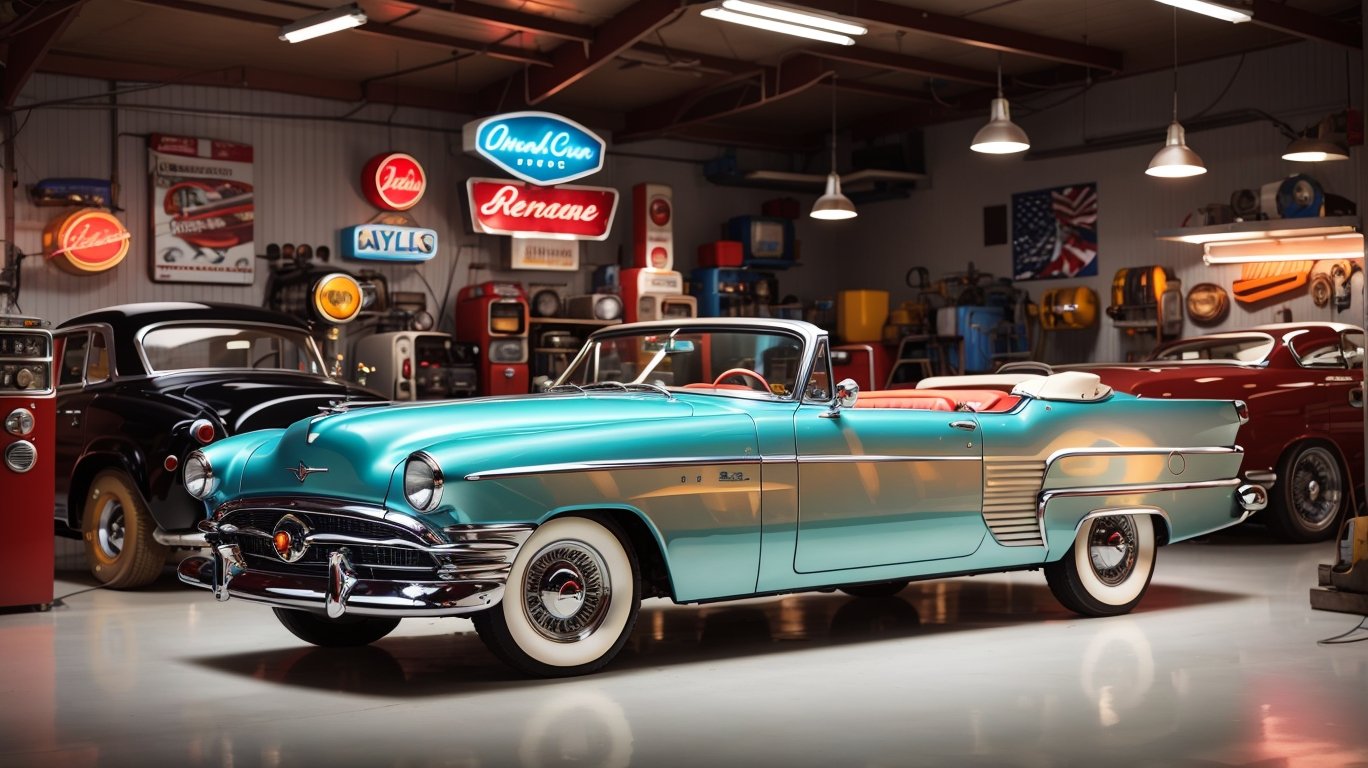
Introduction
Stepping into a job interview can be exciting and nerve-wracking, especially when your goal is to make a lasting impression on the hiring manager. While most people tend to focus on preparing for questions they may be asked, it’s equally important to know which questions you should ask in return.
In this blog post, we’ll discuss various types of questions that will not only demonstrate your interest in the position and help you gather essential information about the company culture, work environment, and growth opportunities.
Types Of Questions To Ask In An Interview

When preparing for an interview, it’s essential to have a list of thoughtful questions to ask the hiring manager, such as general questions about the company’s goals and values, specific questions about the role and responsibilities, inquiries about company culture and work environment, queries regarding growth opportunities and career development paths, as well as behavioral questions.
General Questions About The Company’s Goals And Values
As a job candidate, it’s essential to familiarize yourself with the company’s goals and values to demonstrate your alignment with their vision. Here are some general questions you can ask during the interview to gather more information on this aspect:
1. Please share insight into the company’s mission, vision, and long-term objectives.
2. How do the organization’s core values impact day-to-day operations and decision-making?
3. What key milestones will the company achieve in the next year or two?
4. How does this specific role and position contribute to realizing the company’s goals and objectives?
5. Are any upcoming projects or initiatives highlighting the company’s commitment to its core values and strategic vision?
6. Can you tell me about a recent accomplishment or success story within the company that exemplifies these values?
7. In what ways does senior management work to communicate and reinforce these values throughout the organization?
By asking these thoughtful questions about a company’s goals and values, you’ll not only be able to understand their priorities better but also showcase your genuine interest in contributing meaningfully to their mission.
Specific Questions About The Role And Responsibilities
1. Can you provide more details about the day-to-day responsibilities of this position?
2. How does this role contribute to the overall success of the team missing the company?
3. Are there any specific skills or qualifications you’re looking for in a candidate for this role?
4. What are the most challenging aspects of this last job search?
5. How would you describe your management style, and how does it apply to this position?
6. Is there a formal performance review process, and how often would I receive feedback on my work?
7. Can you tell me about any ongoing or upcoming projects on which the person in this role will work?
8. How will my performance be measured, and what are the key indicators of success in this position?
9. Are there opportunities for professional development within this role, such as attending conferences or receiving additional training?
10. Can you provide examples of how previous employees in this role have advanced within the company?
Questions About The Company Culture And Work Environment
1. How would you describe the company culture and values?
2. What does a typical day look like for someone in this role?
3. Can you give me an example of how the company supports work-life balance for its employees?
4. How does this company foster teamwork and collaboration among employees?
5. What is the management style within this organization?
6. Are there employee resource groups or clubs that foster a sense of community and inclusion?
7. How do departments and teams collaborate on projects or initiatives?
8. What are a few questions or some recent examples of company-wide events or traditions that contribute to the overall work environment?
9. Can you tell me about any training or professional development opportunities available for employees in this role?
10. How is performance reviewed and recognized within the company? Is there a formal review process in place?
Questions About Growth Opportunities And Career Development
As someone always looking to learn and grow in my career, I believe it’s essential to ask about growth opportunities and career development during an interview. Here are some sample questions to consider asking:
1. How does the company support employee development and growth?
2. Are there any professional development programs or courses offered to employees?
3. What types of advancement opportunities are available within the company?
4. How to do the performance review process and its role in career development work?
5. Can you provide examples of other successful employees who have grown within the company?
6. How does the company encourage employees to take on new challenges and responsibilities?
7. Are there any mentorship or coaching programs available for employees?
8. Can you share any specific plans or initiatives for the company’s future growth and how my position may contribute?
9. Does the company have a clear career path outlined for employees in my position?
10. How are new skills and knowledge gained by employees recognized and rewarded within the company?
By asking these types of questions, you can better understand how the company values employee growth and development and assess if there are meaningful opportunities for your career advancement within the organization.
Behavioral Questions
Behavioral questions are an essential part of any job interview because they help the hiring manager understand how you’ve handled certain situations in the past. Here are some examples of behavioral questions to ask during the final questions of an interview:
1. Can you tell me about when you had to handle a demanding customer or client?
2. Give me an example of how you have dealt with a challenging team member in the past?
3. How do you manage your priorities and stay organized when working on multiple projects simultaneously?
4. Can you give me an example of when you had to make a tough decision that involved balancing competing interests?
5. Tell me about when you had to take the initiative and lead a project/team. What was your approach, and what were the results?
Be sure to answer the next steps of these questions with specific examples from your professional experience, using the STAR technique: Situation, Task, Action, Result. This will help showcase your skills and problem-solving abilities to potential employers.
The Importance Of Asking Thoughtful Questions In An Interview

Asking thoughtful questions in an interview is crucial because it demonstrates your interest in the job and company, helps you gather important information to make a well-informed decision, allows you to showcase your skills and knowledge, and allows you to assess if the job is truly a good fit for you.
Demonstrates Your Interest In The Company And Job
Asking thoughtful questions in an interview is a great way to show your interest and commitment to the company and job. Employers want to hire people genuinely interested in the role, and by coming prepared with smart questions, you demonstrate that you’ve done your research and are serious about wanting the job.
Additionally, asking specific questions can help you learn more about the company’s goals, values, culture, and expectations for employees. For example, asking about professional development opportunities or onboarding processes shows that you’re invested in growing as an employee within the organization.
It helps You Gather More Information To Make An Informed Decision.
By asking thoughtful questions during an interview, you can gather crucial information to help you decide whether the job fits you.
For example, suppose you ask about the company’s performance review process or professional development opportunities. In that case, you can see how much support they offer for career growth and advancement.
Similarly, asking about the day-to-day responsibilities and team dynamics can give you a realistic understanding of the job description.
Asking relevant questions during an interview helps gather more information and shows your interest in the role and company. This displays diligence on your part as it demonstrates that rather than just looking for any work opportunity, you are focused on finding a position where both parties benefit from one another’s mutual interests.
It gives You A Chance To Showcase Your Skills And Knowledge.
Asking thoughtful questions during an interview is not only a chance for you to learn more about the company’s culture and role, but it also allows you to showcase your skills and knowledge.
By asking specific and relevant questions, you can demonstrate your understanding of the industry and your ability to think critically and problem-solve. For instance, if you are interviewing for a marketing position, asking about the company’s current social media strategy or upcoming campaigns shows that you have researched and have ideas on contributing to their success.
Overall, preparing thoughtful interview questions well beforehand allows you to stand out from other job candidates by showcasing your unique perspective and expertise.
Allows You To Assess If The Job Is A Good Fit For You
Asking thoughtful questions during an interview isn’t just about showing interest in the job; it’s also an opportunity to determine if the company-changed role is proper for you. By asking questions that delve into the nitty-gritty of day-to-day responsibilities, company culture, and growth opportunities, you can gain valuable insight into what it would be like to work there.
For example, if you’re someone who thrives on collaboration but learns that this position requires a lot of individual work with limited team interaction, it may not be the best fit for you.
Strategies For Asking Effective Questions

To ensure you are asking the right questions, it’s essential to prepare in advance by researching the company and job, asking open-ended questions to encourage discussion, avoiding compensation inquiries too early on, following up on responses given by the interviewer, and considering asking about their own experience with the company.
Prepare In Advance By Researching The Company And Job
Before going to an interview, I always research the company and job. This helps me understand the organization’s culture, goals, values, and mission.
For example, suppose I’m interviewing for a digital marketing manager position at a tech startup. In that case, I’ll read up on their existing marketing campaigns and social media presence to get a sense of their priorities and areas for growth.
This way, when it comes time to ask questions during my interview, I can bring up specific examples from my research and demonstrate how my experience can contribute to their success.
Ask Open-ended Questions To Encourage Discussion
Asking open-ended questions during an interview is a great way to encourage the hiring manager to open up and share more information about the company and position. These questions cannot be answered with a simple “yes” or “no,” but instead require more profound thought and explanation, which can lead to a more engaging conversation.
For example, instead of asking, “Do you offer flexible work hours?” try asking, “Can you tell me more about how your team manages work-life balance?” This shows that you’re genuinely interested in learning about the company culture and allows for a more thoughtful discussion where both parties can share their thoughts and experiences.
Avoid Asking About Compensation Too Early In The Interview Process
One thing I have learned from my years of interviewing job candidates is that it’s important to avoid asking about compensation too early in the interview and hiring process. While it’s understandable that salary and benefits are important factors when considering a job offer, asking about these details right away can be self-centered or presumptuous.
Instead, focus on building rapport with the hiring manager and learning more about the company culture, goals, and values. This will help you demonstrate your interest in the role while gathering valuable insights to decide if an offer is extended later.
Follow Up On The Interviewer’s Responses To Show Engagement
Asking thoughtful questions during an interview is only half the battle; following up on the interviewer’s responses shows even more engagement and interest in the position.
Remembering key points from their answers can help guide your follow-up questions and demonstrate that you’re paying attention. For example, if they mention a specific project or initiative they’re currently working on, ask how your potential role could contribute to it or support hitting its goals.
Consider Asking About The Interviewer’s Own Experience With The Company
One compelling question to ask in a job and during an interview is about the interviewer’s experience with the company. This shows your interest in learning more about the company culture and gives you insight into what it is like to work there.
By asking this question, you could gain valuable information on how long the interviewer has been with the company and what they enjoy most about working there.
For example, if the interviewer mentions that one of their biggest challenges was unrealistic expectations from management, this could be a red flag for job candidates looking for a positive work environment.
On the other hand, if they mention one of their favorite office traditions or team events, it could be a sign of strong team dynamics and positive workplace culture.
Conclusion: Asking The Right Questions During An Interview Can Make A Significant Impact On Your Chances Of Landing The Job, So Take The Time To Prepare And Come Up With Thoughtful Questions That Show Your Interest And Commitment To The Role
In conclusion, asking the right questions during an interview can make all the difference between getting hired and not. It’s crucial to take the time to prepare and come up with thoughtful and best questions to ask that demonstrate your interest and commitment to the role.
Doing so will show your potential employer you are eager to learn more about their company, values, culture, and future goals. You’ll also gain valuable insights into the position’s requirements, growth opportunities, and day-to-day responsibilities that will help you determine whether it’s an excellent fit for you personally and professionally.
For more on this topic, see Building Your Leadership Brand: How to Establish Yourself as a Leader
Essential Skills For Leaders









Leave a Reply